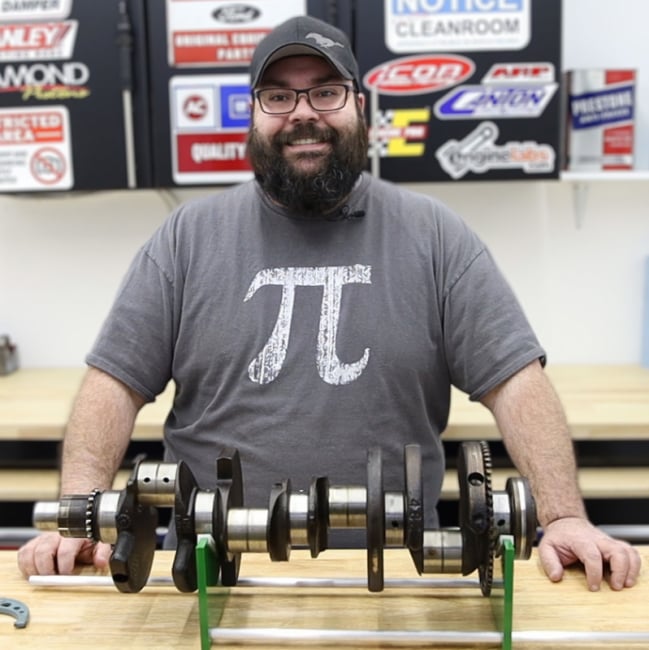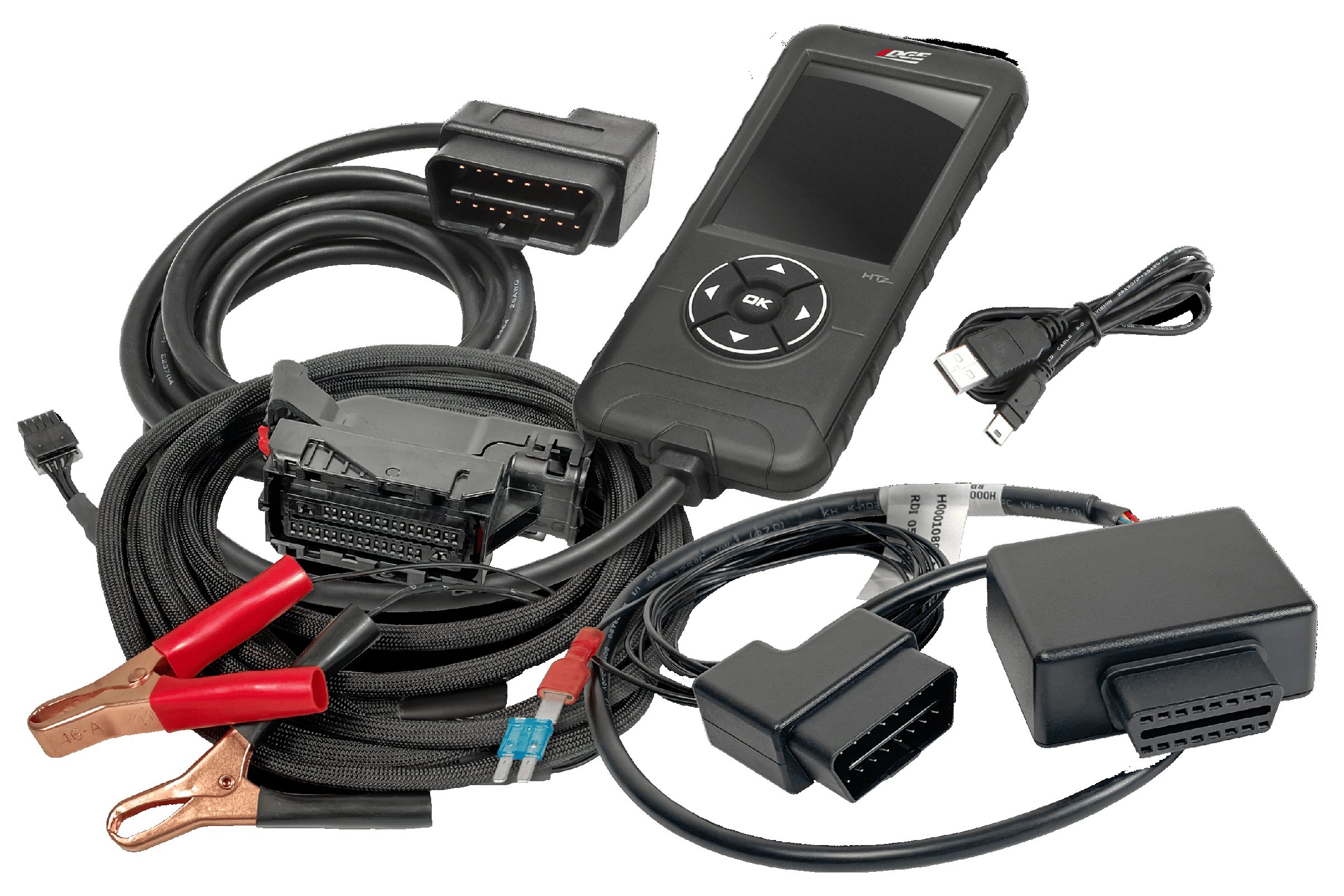When we consider what we want to feature for a Tool of the Month, there are a lot of criteria. One of the most heavily weighted criteria is extremely subjective, and that is how cool we think the tool is, personally. So, when you get a tool that incorporates digital technology with precision metrology, and the word “NIST” pops up, we get excited. Enter Intercomp’s Digital Torque Wrench Tester.
You might know Intercomp from their digital vehicle scales or their digital valve-spring testers — both of which are badass tools in their own right. Looking at their lineup of tools, it’s quite apparent that the company specializes in precision weight and measurement tools. So when we ran across their digital torque wrench tester (P/N: 102028), our pulse quickened a bit.
I’d wager to say that most, if not every one of you reading this owns a torque wrench. There is no arguing that precise torque being applied on fasteners is a critical part of building an engine. Maybe slightly less critical for other assemblies throughout the vehicle, but every single fastener in our vehicle, be it a factory street car or a full-custom race car, has a proper torque spec. Those specs aren’t pulled out of thin air, and they are an important part of proper assembly.
Simply owning a torque wrench is just one part of the equation. As they are precision-calibrated instruments, they are sensitive to time, use, and abuse. So it only stands to reason that you need a way to monitor the tool’s calibration and make sure that it’s still working properly before you use it. The Intercomp digital torque wrench tester allows you to check your wrench’s calibration on a regular schedule, or, whenever you feel like it. (We’re going to be diving much deeper into that subject in an upcoming article, so stay tuned for that.)

The unit is low-profile and compact, only taking up about 9×9 inches on your bench. We opted to mount it to the bench using 1/4-20 socket-head cap screws into EZ-Lok threaded inserts sunk into the wood benchtop.
Checking The Accuracy Of The Checker
Now, without getting too much into the future article discussing standards of measurement and calibration, the general rule of thumb is you want something on the order of 10 times more accurate or precise than the tool you are trying to calibrate. So, for a pair of calipers that measure to the thousandth of an inch (.001), you’d want a standard that is accurately measured to the ten-thousandth of an inch (.0001). Accordingly, you would need that standard to be measured with something calibrated to a hundred-thousandth of an inch (.00001), and so on.
For torque measurements, the average inexpensive torque wrench claims an accuracy of plus or minus 4 percent. High-end digital wrenches often claim half that variance, at plus or minus 2 percent. Intercomp’s digital torque wrench tester boasts an accuracy of plus or minus a scant 0.25 percent, which is more than precise enough to calibrate a torque wrench to the level of accuracy we require in the automotive space.
In order to achieve this level of precision, as the rule of thumb indicates, the calibration of the checker is done with equipment far beyond the simple 10x rule. In fact, Intercomp uses fixed-mass weights, that are NIST-certified. NIST — or the National Institute of Standards and Technology — is responsible for ensuring that things that need to be accurate, can be as accurate as humanly possible. By using NIST-certified weights, there is a direct connection between the mass and accuracy of them, and the actual government standard references.
Also, by using a fixed-mass calibration, there is no tolerance stacking happening in the torque checker’s initial calibration. Some might call that level of precision overkill. If you’ve read EngineLabs at all, you know that I geek out over this stuff, and seeing that level of accuracy and precision releases Serotonin and soothes my brain — yes, it elicits a legitimate physiological reaction. But enough of that for now. There is definitely a deeper dive to come on all that, so keep an eye out for it.

Intercomp calibrates each unit using a fixed-mass setup, using a fixed arm and NIST-certified weights, for extreme precision. The unit comes with a calibration report and is guaranteed to be within plus or minus 0.25 percent of actual torque.
Back to Intercomp’s digital torque wrench tester, it’s remarkably simple to use. It operates on a standard 9-volt battery with a backlit display for use in dim lighting conditions. The tester itself is designed for 1/2-inch-drive torque wrenches (we’ll actually be testing what effect adapters have on torque readings in an upcoming article as well) and has a peak hold feature that saves the maximum reading, allowing the checking of click-type wrenches, along with flex-beam and digital wrenches.
The digital torque checker will display in pound-feet as well as pound-inches, so it can be used to check smaller wrenches as well. And for those of you who prefer those silly metric units, it will also display in Newton-meters (calm down, it’s just a joke… the “silly metric unit” part, not that the checker will measure in N⋅m; it will do that). The unit has a range of 0 to 200 lb-ft, 0 to 2,400 lb-in, or 0 to 271 N⋅m.

The tester is designed for 1/2-inch drive tools, but we’ll be testing what effects drive adapters have on the torque value in an upcoming article.
The tool has four quarter-inch mounting holes around the perimeter of the tool for stable mounting to your work bench. Measuring about 9 inches in each direction. You could simply screw it to a table, or, drill a few 1/4-inch holes and drop some 1/4-20 hardware through them and bolt it down. Or, you could do what we did (being extra, as always) and sink four EZ-Lok threaded adapters into the bench top so that you can easily store the torque wrench tester when not in use, and then just run down four stainless socket-head cap screws when you need to use it.
No doubt the Intercomp digital torque wrench tester isn’t for everyone. If you are fine using a $10 Harbor Freight torque wrench for 15-plus years (no hate… where do you think we’re getting the 15-year-old HF wrench to test?), then you probably aren’t interested in a tool like this. But, if you are someone who can truly appreciate the importance of checking and maintaining the calibration of your tools, The Intercomp digital torque wrench tester definitely needs to be on your radar.



















